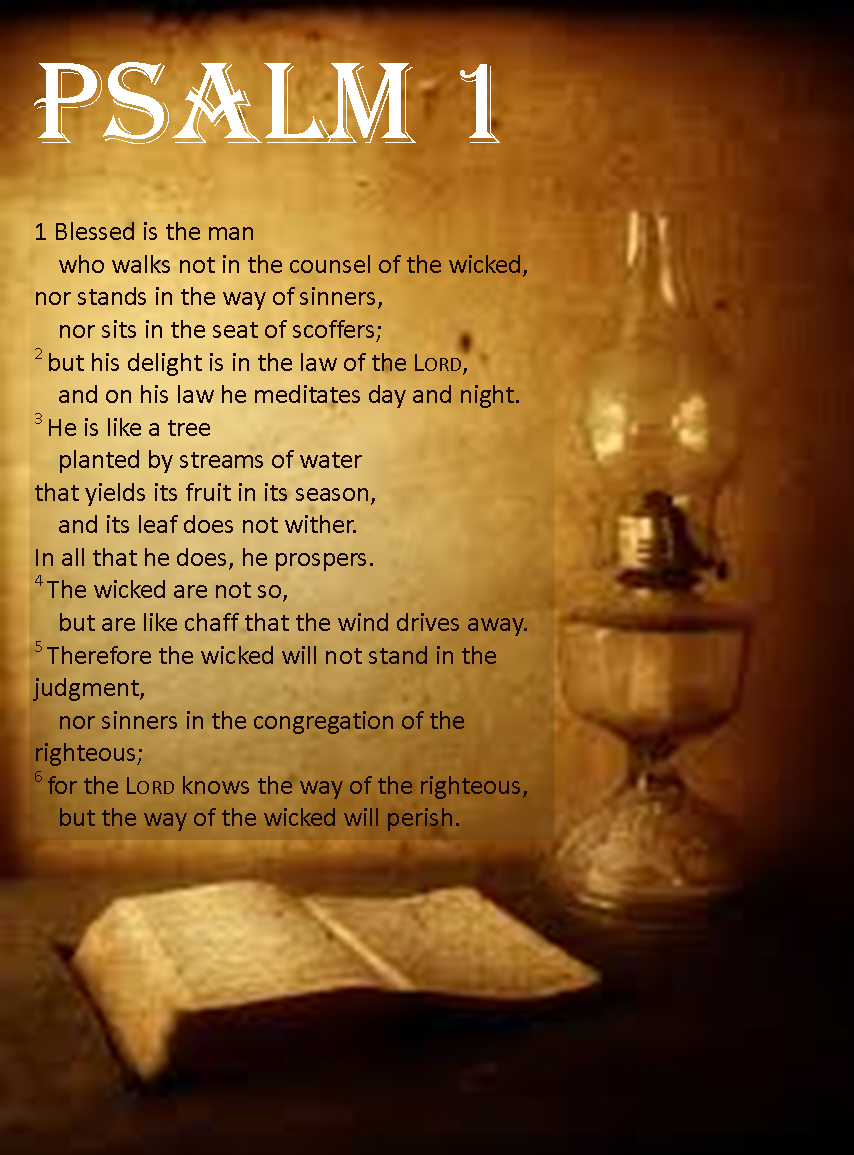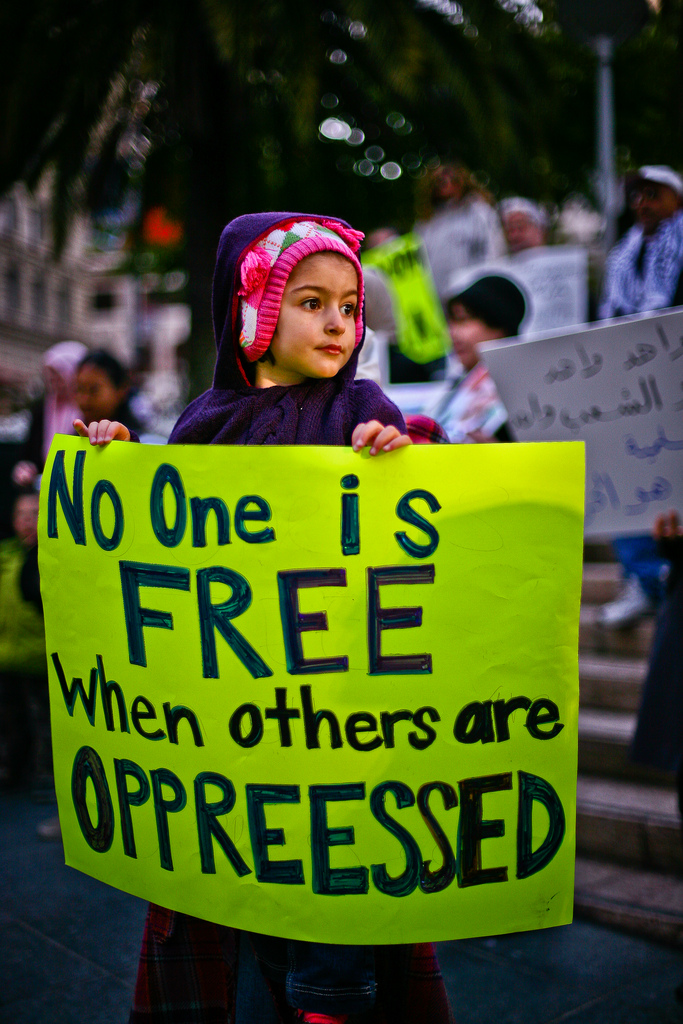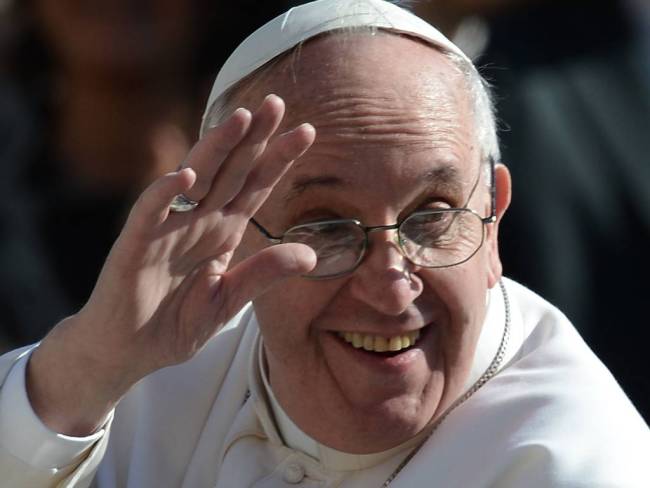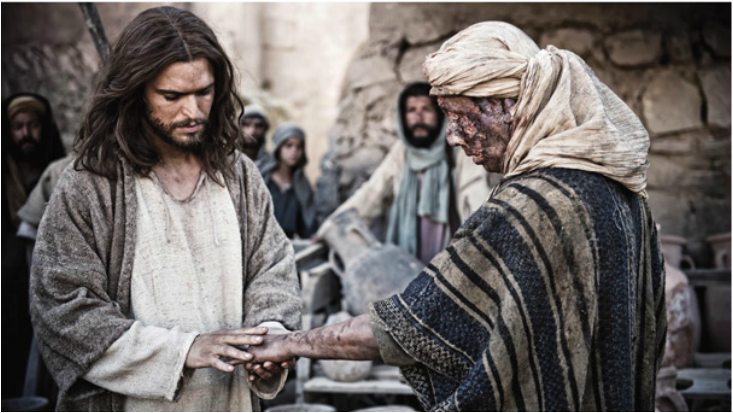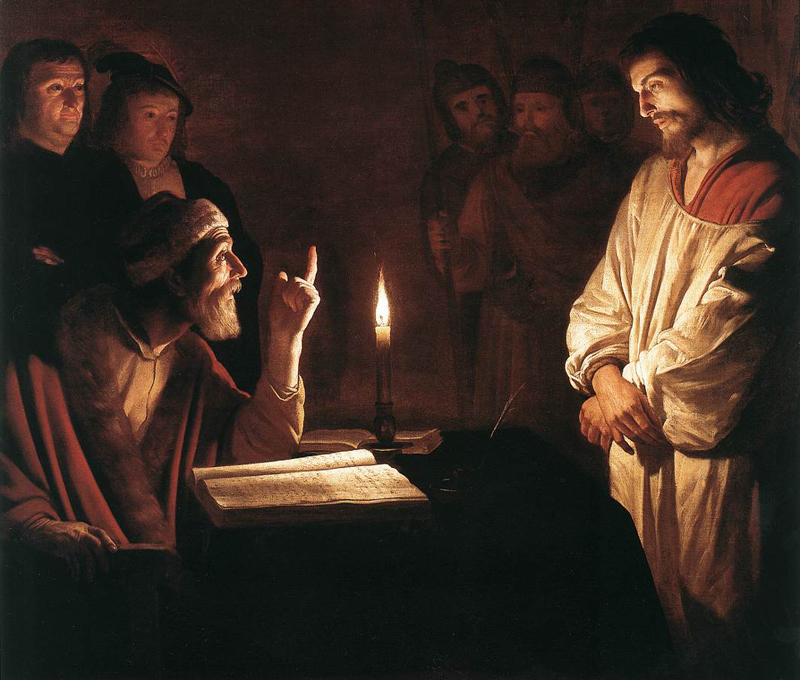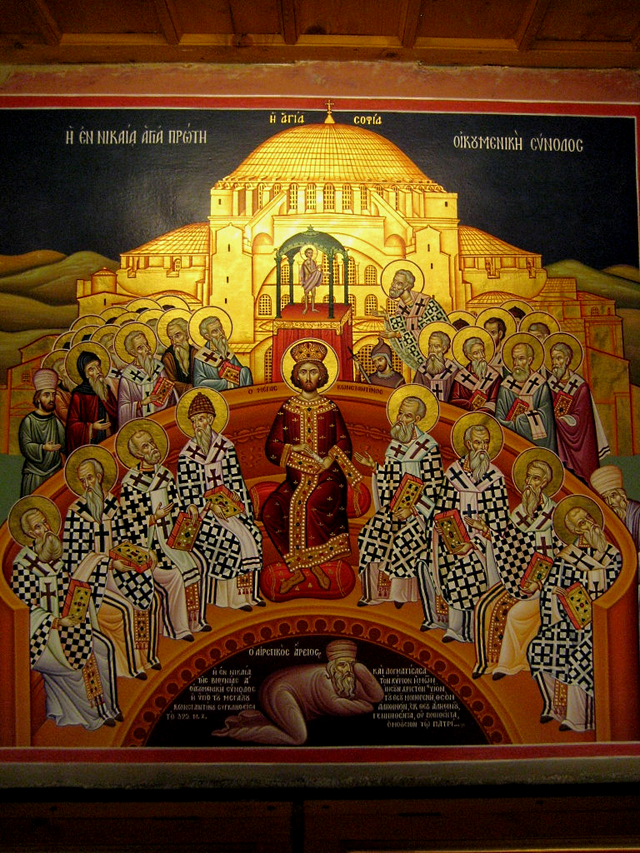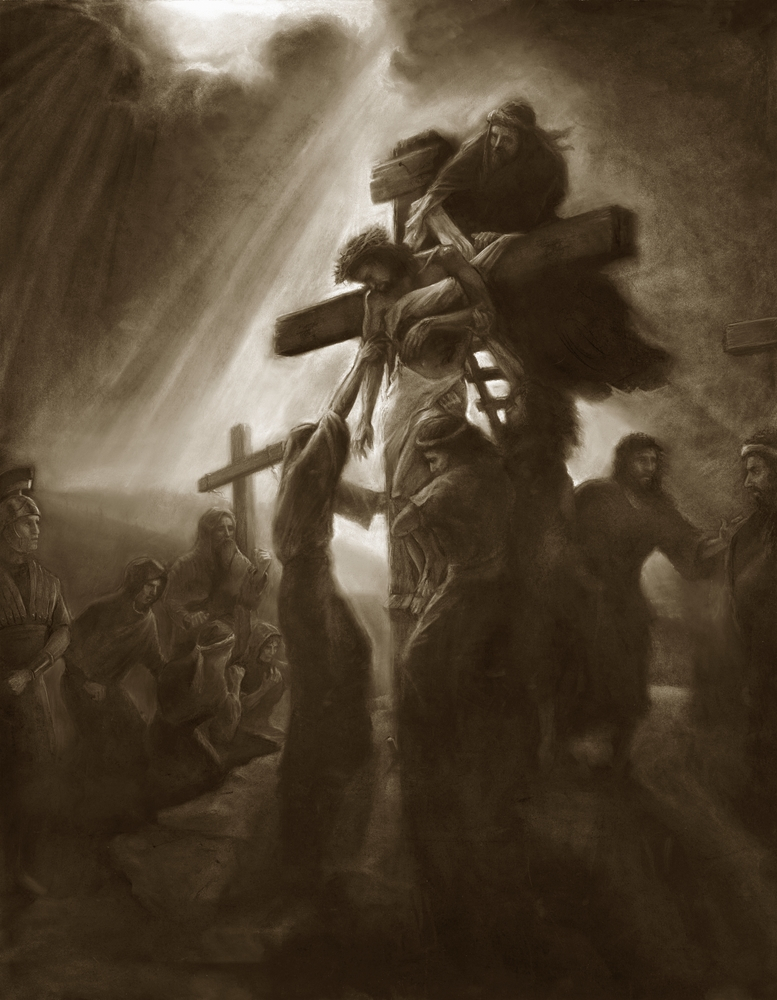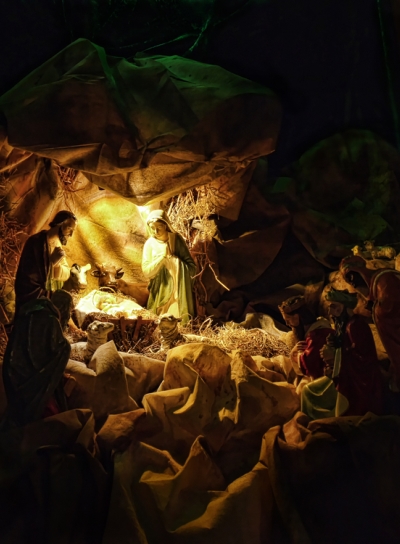I pray, and look to scripture, and consider our role as people on an ever-changing planet as residents in and stewards of creation.
Our Current Situation. We live in a time in which the possibilities for evil are multiplying as fast and possibly faster than the good being accomplished by our innovations.
While you can choose to believe in anything, I think faith requires a little more structure. Something more rigid. Something with tradition and maybe even ritual. Something with, God forbid, rules. For a while the faith we choose, or make up, is dependent on the limits of our knowledge, culture and experience, so that faith, definitively chosen, or made up, limits our expression of free will as it imposes on us rules not to be violated.
Out of the mouths of babes comes either curiosity and wonder or doubt and defiance. On either extreme the truth that emerges is always a question: “Why?”
Can a person be both a progressive Christian and a political conservative?
The Psalm introduces, but barely describes, the way of the wicked vs. the way of the righteous. The psalmist surely sings of non-believers and believers, but today I think the division is appropriate for paths that begin with and defend different interpretations of the same Word. Can they possibly end up at the same place?
I’ve been spending a lot of time with psalm 123 lately. The church I attend had a session on the theology of mental illness and this psalm speaks directly to the mindset behind the stigma that so many, like me, with serious mental illness confront.
In a late night session on February 7, 2017, during Jeff Session’s confirmation hearing for U.S. Attorney General, just weeks after the inauguration of President Donald Trump, the United States Senate voted to silence Senator Elizabeth Warren after she read comments made decades earlier by Edward Kennedy and Coretta Scott King that criticized the civil rights record of Senator Sessions. Warren was censured because Senate Rule XIX prohibits ascribing "to another senator or to other senators any conduct or motive unworthy or unbecoming a senator." To silence her, Senate Majority Leader Mitch McConnell led a party-line vote that forced Senator Warren to take her seat and refrain from speaking. McConnell later said “Senator Warren was giving a lengthy speech. She had appeared to violate the rule. She was warned. She was given an explanation. Nevertheless, she persisted.”
Regardless of religion, much of the world worships, believes in, or supposes a terrible deity. This “God” causes or permits death, destruction, disaster, droughts, disorders, disease, and damnation—and these are just the words that alliterate nicely. This “God” hates homosexuals, privileges males over females, has cursed certain races and religions and conditions, and does not tolerate differences.
In this article, I would like to point out 3 crucial problems that arise when one begins with “plain truths” about the book rather than the Christ, the Logos, the “structuring principle of reality.” (John 1:1–5)
We know what to do. The Universal Declaration of Human Rights begins: “Whereas the peoples of the United Nations have in the Charter reaffirmed their faith in fundamental human rights, in the dignity and worth of the human person and in the equal rights of men and women and have determined to promote social progress and better standards of life in larger freedom.” Unitarian Universalists claim the “inherent worth and dignity of all humanity.” Christians claim the Apostle Paul’s ecstatic revelation that “You are no longer Jew or Greek, no longer slave or freeborn, no longer ‘male and female.’ Instead you all have the same status in the service of God’s anointed Jesus.” Leviticus 19:18 says, “Love your neighbor as yourself.” Jesus said, “Love your enemies.”
“LAUDATO SI’, mi’ Signore” – “Praise be to you, my Lord”. In the words of this beautiful canticle, Saint Francis of Assisi reminds us that our common home is like a sister with whom we share our life and a beautiful mother who opens her arms to embrace us. “Praise be to you, my Lord, through our Sister, Mother Earth, who sustains and governs us, and who produces various fruit with colored flowers and herbs”.
Civilization defines justice as retribution – payback; an eye for an eye. But the deeper meaning of justice is distributive: the rain falls on the good, the bad, and the ugly without partiality. Civilization does not use that definition except in cases where there is clearly injustice if partiality enters the picture.
(Excerpt from Theology From Exile Vol. III, The Year of Mark by Sea Raven, D.Min.) Acts 10:34-43; Isaiah 25:6-9; Psalm 118:14-24; 1 Corinthians
Satire and Blasphemy in the Teachings of a Galilean Sage
Radical religious extremists with a distorted view of Islam commit horrific acts of terror, executing the staff of a small satirical French publication. The satirists had dared to depict the Prophet Mohammed in cartoon caricature; all the while lampooning those misbegotten adherents who in turn regard such irreverent acts as blasphemous. The Western world reacts with outrage and defiance to such an affront. World leaders join a million person protest and unity march through the streets of Paris, chanting “Je Suis Charlie,” in defense of freedom of speech, and on behalf of the publication’s name. While a clear distinction might be drawn between the use of words and the vehement reactions they may incite, more profound underlying questions remain. While anti-blasphemy laws are common in Muslim countries, countless other "secular" countries have laws against the defamation of religion, as well. Once the dust settles and more thoughtful discussion ensues, one might ask what constitutes the differences between hate speech and freedom of expression? This commentary consider s esus' use of what was deemed blasphemous satire, it's intended purpose, and well-known consequences.
Introduction In my faith journey, I have struggled with the concept of the Trinity. Like many other followers of Jesus I suspect, I
For those like me who see Jesus, not as the divine Son of God in our midst, but as a courageous sage and social prophet, and for those of us who see God as other than an all-powerful distant deity – the language of reverence is rooted in the story of existence and the universe itself. That becomes a religious story whispering of a larger meaning of our existence or in Bumbaugh’s words each of us is “a self present in the singularity that produced the emergent universe; a self present at the birth of the stars; a self related through time to every living thing on this planet; a self that contains within it the seeds of a future we cannot imagine in our wildest flights of fantasy.” That non-traditional evolutionary sacred story invites us to stand in awe; and it calls us to create a whole new vocabulary of reverence even as we commit to cherishing and caring for the earth.
One of the most serious theological conflicts in the history of Christianity occurred more than one thousand six hundred years ago. Known as
The varieties of religious experience call forth hymns and songs, emerging from the varieties of cultures, personality types, and religious expressions. Our worship and song reflects this diversity. We join in sacred worship traditional and contemporary, North American and African, and European and Asian. We chant hymns from Taize and melodies from Iona, and dance to “Siyahamba” (We are marching in the light of God), sometimes in the same service.
Hebrew Scripture’s View of Life after Death It wasn’t until after the Babylonian Exile that the Pharisees accepted the idea of heaven and
For Christians grace is God’s gift of pardon. According to William Barclay the Greek word for grace was originally a military term. When an emperor came to the throne or celebrated a birthday, he would give his troops a donatirim (donation), which was a free gift that they had not earned; it was given out of the goodness of the emperor’s heart. This idea was picked up by the Christian scripture writers when they wrote about the grace of God. Grace is something that is unearned and undeserved – unmerited pardon.
The dry bones raised by Ezekiel are a metaphor for those who died in the service of God’s justice: those who died working to restore God’s distributive justice-compassion to God’s Earth, and who themselves never saw the transformation. The army of dry bones is an army exiled from justice. Fairness demands that if Jesus was resurrected into an Earth transformed into God’s realm of justice-compassion, then all the other martyrs who died too soon should also be raised with him. “But in fact,” Paul writes in 1 Corinthians 15:20, “Christ has been raised from the dead, the first fruits of those who have died.” It is the Christ – the transformed and transfigured post-Easter Jesus – who has started that general resurrection, which restores justice-compassion to a transformed Earth. The transformation has begun with Jesus, and continues with you and me – IF we sign on to the program.
One of the most reliable facts concerning Jesus is that he was crucified during the reign and by the action of the Roman procurator, Pontius Pilate, who served by appointment of the Caesar from 26-36 CE. The Roman senator and historian Tacitus referred to Jesus’ execution by Pilate in his Annals, which was written circa 116 CE. Beyond that, however, there is not much historical evidence.
So what do I mean by a sacred community or spiritual community, or as Peck would call it a true community? I refer here to an intentional community with an identifiable common purpose. Maybe that purpose is simple to grow spiritually as individuals. It is a community where one can transcend oneself and experience a sense of the interconnectedness of life. It is a community in which each member seeks to see and relate to the divine or the sacred in the other.
Judas Iscariot, the anti-hero of the story of the crucifixion, has been heaped with scorn and ridicule over the centuries. “Judas” is not used as a child’s name because it became the synonym for betrayal, for being a back-stabber. In Christian art, he is portrayed in dark, sinister tones. Events in western Christian history from the Inquisition in the fourteenth century to the expulsion of the Jews from almost every country of Europe at one time or another, to Martin Luther’s call for the burning of synagogues, to the violence and killing frenzy of the Holocaust in the twentieth century are all rooted substantially in Judas and because he was a Jew, applied to all Jews. Even his name is identical with the name by which the entire Jewish nation was known… Judas is simply a Greek spelling of Judah.
The God I Don't Believe In
When it comes to religion, Atheism is as good as any, since religion is simply about how you put some order in your otherwise chaotic world, and come up with a list of things you believe or disbelieve. The atheist and the theist both want to ask the same basic question: Do you believe in God or not? Often they are not interested in going much deeper than that. The oft-repeated response a famous preacher once gave to a religious skeptic went, “Tell me about the God you don’t believe in. Chances are I don’t believe in that kind of God either.”
Great Spirit, Source of Love and Life, Help us bring an end to strife; Fill all our hearts with peace and grace, May we enhance the human race.
Jerusalem, Now and When?
Why would a Jewish American doctor risk serving the medical needs of Palestinian children in the occupied territories of the West Bank?
More enervated than inspired by this year’s campaign season, I thought of writing a parody of Jesus’ Beatitudes (you know, “Blessed are the job creators…”) or maybe collect Jesus’ sayings about the way things are and the way things should be and place them in contemporary U.S. contexts (such as the parable of the laborers in the vineyard whose time cards differed but whose pay was the same)...
Progressive Christianity as it exists here and practiced on the discussion board is in my view well noted as an aid to deconstruction of the programmed dogma and doctrine of the traditional church system. Many but not all seem to come here that appreciate the support and presence of like minded individuals who have come to similar conclusions. What has been voiced here in the past is that we are good at deconstruction of organized religion but not at all in reconstruction.
2) The Hebrew scriptures, or the Old Testament, represent a religious tradition that is independent of the later Christian faith. The Hebrew scriptures aren't about Jesus, although the Christian scriptures include many references to the Hebrew scriptures. To honor the fundamental differences between the two sets of scriptures doubles the spiritual significance of the entire Bible.





